Lecture 9: How to Raise Money
第九讲:如何筹集资金
第9讲课程视频
![图片[1]_Lecture 9: How to Raise Money 第九讲:如何筹集资金_繁木网](http://fanmu.com/wp-content/uploads/2021/12/Y-Combinator.jpg)
Sam Altman: I would like to start with a question for Marc and Ron, which is by far the number one question we are going to be looking at today, what made you decide to invest in a founder company?
山姆·奥尔特曼:我想先问马克和罗恩一个问题,这是我们今天要讨论的首要问题,是什么让你决定投资一家创始人公司?
Ron Conway: Well we have a slide on that-
罗恩·康威:我们有一张幻灯片-
Sam Altman: Marc can start while we get that up.
山姆·奥尔特曼:马克可以在我们把它弄起来的时候开始。
Ron Conway: So what makes us invest in a company is based on a whole bunch of characteristics. I have been doing this since 1994, right before Marc got out of the University of Illinois, so SV Angel and its entities have invested in over 700 companies. To invest in 700 companies that means we have physically talked to thousands of entrepreneurs and there is a whole bunch of things that just go through my head when I meet an entrepreneur. I am just going to talk about what some of those are.
罗恩康威:所以我们投资一家公司的原因是基于一系列的特征。我从1994年开始做这件事,就在马克从伊利诺伊大学毕业之前,SV Angel和它的实体已经投资了700多家公司。投资700家公司意味着我们已经和成千上万的企业家进行了实际的交谈,当我遇到一个企业家时,我脑子里会闪过一大堆事情。我只想谈谈其中一些是什么。
Literally while you are talking to me in the first minute I am saying “Is this person a leader?” “Is this person rightful, focused, and obsessed by the product?” I am hoping—because usually the first question I ask is “What inspired you to create this product?”—I’m hoping that it’s based on a personal problem that that founder had and this product is the solution to that personal problem. Then I am looking for communication skills, because if you are going to be a leader and hire a team, assuming your product is successful, you have to be a really good communicator and you have to be a born leader. Now some of that you may have to learn those traits of leadership but you better take charge and be able to be a leader. I’ll switch back to the slide, but let’s let Marc.
当你第一分钟跟我说话的时候,我在说“这个人是领导吗?“这个人是对的、专注的、对产品着迷的吗?我希望如此,因为通常我问的第一个问题是“是什么激发了你创造这个产品?”-我希望这是基于创始人的个人问题,而这个产品是解决个人问题的方法。然后我在寻找沟通技巧,因为如果你想成为一个领导者并雇佣一个团队,假设你的产品是成功的,你必须是一个真正优秀的沟通者,你必须是一个天生的领导者。现在,你可能需要学习一些领导力的特质,但你最好负责,并且能够成为一名领导者。我要换回到幻灯片上,但是让马克。
Marc Andreessen: Yeah, I agree with all of that. There is a lot of detail to this question that we can talk about. And we may be a little different than Ron, well we are different than Ron, in that we invest in across stages. We invest in the seed stage, the venture stage, growth stage. And then we invest in a variety of business models: consumer, enterprise, and a bunch of other variations. There are a bunch of fine grained answers that we could get into if there are specific questions.
马克·安德森:是的,我同意所有这些。这个问题有很多细节我们可以谈。我们可能和罗恩有点不同,我们和罗恩不同,我们在不同的阶段投资。我们投资于种子期,创业期,成长期。然后我们投资于各种商业模式:消费者、企业和一系列其他的变化。如果有具体的问题,我们可以得到一堆细粒度的答案。
欢迎到火门网讨论:huomen.com
Two general concepts I would share: one is the venture capital business is one hundred percent a game of outliers, it is extreme outliers. So the conventional statistics are in the order of four thousand venture fundable companies a year that want to raise venture capital. About two hundred of those will get funded by what is considered a top tier VC. About fifteen of those will, someday, get to a hundred million dollars in revenue. And those fifteen, for that year, will generate something on the order of 97% of the returns for the entire category of venture capital in that year. So venture capital is such an extreme feast or famine business. You are either in one of the fifteen or you’re not. Or you are in one of the two hundred, or you are not. And so the big thing that we’re looking for, no matter which sort of particular criteria we talked about, they all have the characteristics that you are looking for the extreme outlier.
我想分享两个一般概念:一个是风险投资业务百分之百是一个离群值的游戏,它是极端离群值。因此,传统的统计数字是每年有4000家风险投资公司希望筹集风险资本。其中大约200家将由被视为顶级风投的机构提供资金。其中大约有15个,总有一天,会有一亿美元的收入。而这15项,在那一年,将产生相当于当年整个风险投资类别97%的回报。因此,风险投资是一种极端的盛宴或饥荒业务。你要么在十五人中,要么不是。或者你是200人中的一个,或者你不是。所以我们要寻找的重要的东西,不管我们讨论的是哪种特定的标准,它们都有你要寻找的极端异常值的特征。
The other thing I would highlight that we think about a lot internally, we have this concept, invest in strength versus lack of weakness. And at first that is obvious, but it’s actually fairly subtle. Which is sort of the default way to do venture capital is to check boxes. So really good founder, really good idea, really good products, really good initial customers. Check, check, check, check. Okay this is reasonable, I’ll put money in it. What you find with those sort of checkbox deals, and they get done all the time, but what you find is that they often don’t have something that really makes them really remarkable and special. They don’t have an extreme strength that makes them an outlier.
我要强调的另一件事是,我们在内部考虑了很多,我们有这样一个概念,投资于优势而不是缺乏劣势。一开始这很明显,但实际上相当微妙。风险投资的默认方式是勾选复选框。所以非常好的创始人,非常好的想法,非常好的产品,非常好的初始客户。检查,检查,检查,检查。好吧,这是合理的,我会把钱放进去的。你会发现那些复选框式的交易,而且它们一直都在完成,但你会发现它们往往没有什么真正让它们与众不同的东西。他们没有使自己成为异类的极端力量。
On the other side of that, the companies that have the really extreme strengths often have serious flaws. So one of the cautionary lessons of venture capital is, if you don’t invest in the bases with serious flaws, you don’t invest in most of the big winners. And we can go through example after example after example of that. But that would have ruled out almost all the big winners over time. So what we aspire to do is to invest in the startups that have a really extreme strength. Along an important dimension, that we would be willing to tolerate certain weaknesses.
另一方面,真正具有极端优势的公司往往存在严重缺陷。因此,风险投资的一个值得警惕的教训是,如果你不投资于有严重缺陷的基地,你就不会投资于大多数大赢家。我们可以举出一个又一个例子。但随着时间的推移,这将排除几乎所有大赢家的可能。因此,我们立志要做的是投资于那些真正具有超强实力的初创企业。在一个重要方面,我们愿意容忍某些弱点。
Ron Conway: Okay, I don’t want to over dwell on the slide, but when you first meet an investor, you’ve got to be able to say in one compelling sentence that you should practice like crazy, what your product does so that the investor that you are talking to can immediately picture the product in their own mind. Probably twenty-five percent of the entrepreneurs I talk to today, still after the first sentence, I don’t understand what they do, and as I get older and less patient I say “Backup, I don’t even know what you do yet.” So try and get that perfect. And then I want to skip to the second column. You have to be decisive, the only way to make progress is to make decisions. Procrastination is the devil in startups. So no matter what you do you got to keep that ship moving. If it’s decisions to hire, decisions to fire, you got to make those quickly. All about building a great team. Once you have a great product then it’s all about execution and building a great team.
罗恩·康威:好吧,我不想过多地讨论幻灯片,但是当你第一次遇到一个投资者时,你必须用一句令人信服的话说,你应该疯狂地练习,你的产品做了什么,这样与你交谈的投资者可以立即在他们的脑海中描绘出产品。可能今天我和25%的企业家交谈,在第一句话之后,我不明白他们在做什么,随着我年龄的增长和耐心的减少,我会说“备份,我甚至不知道你在做什么。”所以试着把这句话说得完美。然后我想跳到第二栏。你必须果断,取得进步的唯一方法就是做决定。拖延是初创公司的魔鬼。所以不管你做什么,你都要让那艘船继续前进。如果是决定雇佣,决定解雇,你必须迅速做出决定。所有关于建立一个伟大的团队。一旦你有了一个伟大的产品,那么这一切都是关于执行和建立一个伟大的团队。
Sam Altman: Parker, could you talk about your seed round and how that went and what you should have done differently for raising money?
山姆·奥尔特曼:帕克,你能谈谈你的种子回合吗?那是怎么进行的?你应该做些什么来筹集资金?
Parker Conrad: Sure, actually my seed round, most of the stuff with my current company felt like, from a fundraising perspective, felt like it came together relatively quickly. But actually, one of the experiences I had, I started a company before this that I was at for six years, and my co-founder and I pitched almost every VC firm in Silicon Valley. We literally went to sixty different firms and they all told us no. And we were constantly trying to figure out how should we adjust our pitch? How should we do the slides differently? How do we tweak the story? That sort of thing. At one point there was this key insight that someone gave me when I was pitching at Khosla Ventures and this VC said “Guys,” he was looking for some very particular kind of analysis that we did not have on hand, he was like “Guys, you don’t get it.” He was like, “You know if you guys were the Twitter guys, you guys could come in and just be like blublublubluh and put whatever up here and we would invest in you. But you guys aren’t the Twitter guys so you need to make this real easy and have all this stuff ready for us,” and all this kind of stuff.
帕克康拉德:当然,事实上,我的种子期,我现在公司的大部分东西,从筹款的角度来看,都是比较快的。但事实上,我的一个经历是,在此之前我创办了一家公司,在那里工作了六年,我和我的联合创始人几乎为硅谷的每一家风投公司都做过投资。我们真的去了60家不同的公司,他们都告诉我们没有。我们一直在想我们应该如何调整我们的音高?我们应该如何以不同的方式制作幻灯片?我们如何调整这个故事?诸如此类的事情。有一次,当我在科斯拉风险投资公司(Khosla Ventures)投球时,有人给了我一个关键的见解,这个风投说“伙计们”,他在寻找一些我们手头没有的非常特别的分析,他说“伙计们,你们不明白。”他说,“你们知道,如果你们是推特的人,你们可以进来像布鲁一样,把任何东西放在这里,我们会投资于你。但你们不是推特的人,所以你们需要让这一切变得简单,并为我们准备好所有这些东西,”以及所有这些东西。
And I took the exactly opposite lesson of what he wanted me to take away from that which was: geez I should really just figure out how to be the Twitter guys and that’s the way to do this. So actually one of the reasons I started my current company or one of the things that I found really attractive about Zenefits is, as I was thinking about it, it seemed like a business. I was so frustrated from this experience of having tried for two years to raise money from VCs and I sort of decided, to hell with it. You cannot count on there being capital available to you. This business that I started seemed like one that maybe I could do without raising money at all. There might be a path to kind of, there’s enough cash flow it seemed compelling enough that I could do that.
我得到了完全相反的教训,他想让我从中吸取的是:天哪,我真的应该弄清楚如何成为推特的人,这就是做到这一点的方法。所以事实上,我创办我现在的公司的原因之一,或者说我发现Zenefits真正吸引我的原因之一,就在我思考的时候,它看起来像一个企业。两年来,我一直试图从风投那里筹集资金,这让我非常沮丧,我决定去死吧。你不能指望你有可用的资金。我创办的这家公司似乎是一家我根本不用筹钱就可以做的公司。也许有一条路可以走,有足够的现金流,看起来足够有说服力,我可以这么做。
It turns out that those are exactly the kinds of businesses that investors love to invest in and it made it incredibly easy. So I actually think it seems very kind and I said I was an expert for you guys. I don’t actually think I am very good at fundraising. It is probably something that I am less good at than other parts of my job. But I think that if you can build the business where everything is moving in the right direction, if you could be like the Twitter guys, like nothing else matters, and if you can’t be like the Twitter guys, then it is very hard for anything else to make a difference for things to come together for you.
事实证明,这些正是投资者喜欢投资的业务类型,这让投资变得异常容易。所以我觉得这看起来很亲切,我说我是你们的专家。我真的觉得我不太擅长筹款。这可能是我比我工作的其他部分更不擅长的事情。但我认为,如果你能建立一个一切都朝着正确的方向发展的企业,如果你能像Twitter的人一样,什么都不重要,如果你不能像Twitter的人一样,那么其他任何东西都很难为你带来改变。
Ron Conway: Why did that VC say to be like the Twitter guys when the fail whale dominated that site for two years?
罗恩康威:为什么那个风投说要像Twitter的家伙一样,当失败的鲸鱼统治了两年的网站?
Marc Andreessen: Because it worked.
马克·安德森:因为它奏效了。
Ron Conway: The other point I want to make is, bootstrap for as long as you can. I met with one of the best founders in tech who’s starting a new company and I said to her “Well, when are you going to raise money?” “I might not,” and I go, “That is awesome.” Never forget the bootstrap.
罗恩康威:我想说的另一点是,尽可能长时间的引导。我会见了一位科技界最优秀的创始人,他正在创办一家新公司,我对她说:“好吧,你打算什么时候筹钱?“我可能不会,”我说,“太棒了。”永远不要忘记引导。
Marc Andreessen: So I was actually going to close on this, but I’m just going to accelerate it. Parker, I think, gave you the most important thing you will ever hear. Which is also what I was going to say. So the number one piece of advice that I have ever read and that I tell people on these kind of topics is always from the comedian Steve Martin, who I think is an absolute genius, wrote a great book on the start of his career, which obviously was very successful. The book is called “Born standing up”, it’s a short little book and it describes how he became Steve Martin. And the part of the book is, he says what is the key to success? The key to success is be so good they can’t ignore you.
马克·安德烈森:所以我实际上是要结束这个,但我只是要加速它。帕克,我想,给了你你将听到的最重要的东西。这也是我要说的。因此,我读过的关于这类话题的第一条建议总是来自喜剧演员史蒂夫·马丁,我认为他绝对是个天才,在他职业生涯的开端写了一本伟大的书,这本书显然非常成功。这本书叫《站着生》,是一本短小的书,描述了他是如何成为史蒂夫·马丁的。书中的部分是,他说什么是成功的关键?成功的关键是做得好,他们不能忽视你。
So in a sense, we are going to have this whole conversation and I am sure we will keep having it, but it is beside the point, because if you do as Parker has done and you build a business that is going to be a gigantic success then investors are throwing money at you. And if you come in with a theory and a plan and no data and you are just one of the next thousand, it’s going to be far, far harder to raise money. So that is the positive way to put it, is to be so good they can’t ignore you. You are almost always better off making your business better than you are making your pitch better.
因此,在某种意义上,我们将进行整个对话,我相信我们会继续进行下去,但这是离题的,因为如果你像帕克那样做,建立一个将获得巨大成功的企业,那么投资者就会向你扔钱。如果你提出了一个理论和计划,却没有数据,而你只是下一个千人中的一员,那么筹集资金就要困难得多。所以这是一个积极的说法,就是表现得很好,他们不能忽视你。你几乎总是把生意做得更好,而不是把你的广告做得更好。
The other thing, that’s the positive way to look at it, the negative way or the cautionary lesson is that, and this gets me in trouble every single time I say it, but I am on a ton of flu medications so I am going to go ahead and just let it rip, raising venture capital is the easiest thing a startup founder is ever going to do. As compared to recruiting engineers, recruiting engineer number twenty. It’s far harder than raising venture capital. Selling to large enterprise is harder, getting viral growth going on a consumer business is harder, getting advertising revenue is harder. Almost everything you’ll ever do is harder than raising venture capital. So I think Parker is exactly right, if you get in the situation where raising the money is hard, it’s probably not hard compared to all the other stuff that is about to follow. It is very important to bear that in mind. It’s often said that raising money is not actually a success, it’s not actually a milestone for a company and I think that is true. And I think that is the underlying reason, it puts you in a position to do all the other harder things.
另一件事,从积极的角度来看,从消极的角度来看,或者说警示性的教训是,每次我这么说都会给我带来麻烦,但我正在服用大量的流感药物,所以我要继续,让它肆虐,筹集风险资本是创业者最容易做的事。与招聘工程师相比,招聘工程师排在第二十位。这比筹集风险资本要困难得多。向大型企业销售更难,在消费业务上获得病毒式增长更难,获得广告收入更难。几乎所有你要做的事都比筹集风险资本更难。所以我认为帕克是完全正确的,如果你处在一个很难筹集资金的情况下,与接下来的其他事情相比,这可能并不难。记住这一点非常重要。人们常说,筹集资金实际上并不是一个成功,对一个公司来说也不是一个里程碑,我认为这是真的。我认为这是潜在的原因,它让你能够做所有其他更困难的事情。
Sam Altman: Related to that. What do you guys wish founders did differently when raising money? And specifically, Marc, you mentioned this relationship between money and funding?
山姆·奥特曼:与此相关。你们希望创始人在筹集资金时有什么不同的做法?特别是,马克,你提到钱和资金的关系?
Marc Andreeseen: I think the single biggest thing that people are just missing and I think it’s all of our faults, we are all not talking about it enough, but I think the single biggest thing entrepreneurs are missing both on fundraising and how they run their companies is the relationship between risk and cash. So the relationship between risk and raising cash, and then the relationship between risk and spending cash. So I have always been a fan of something that Andy Rachleff taught me years ago, which he calls the onion theory of risk. Which basically is, you can think about a startup like on day one, as having every conceivable kind of risk and you can basically make a list of the risks. So you’ve got founding team risks, are the founders going to be able to work together; then you have product risk, can you build the product; you will have technical risk, maybe you need a machine learning breakthrough or something. Are you going to have something to make it work, or are you going to be able to do that? You will have launch risk, will the launch go well; you will have market acceptance risk, you will have revenue risk. A big risk you get into with a lot of businesses that have a sales force, is that can you actually sell the product for enough money to actually pay for the cost of sales? So you have cost of sales risk. If you are a consumer product, you have viral growth risk. So a startup at the very beginning is just this long list of risks, right, and the way I always think about running a startup is also how I think about raising money. Which is a process of peeling away layers of risk as you go.
马克·安德烈森:我认为人们所缺少的最重要的一件事,我认为这都是我们的错,我们谈论的还不够,但我认为企业家们在筹资和如何经营公司方面所缺少的最重要的一件事,就是风险和现金之间的关系。所以风险和筹集现金的关系,然后是风险和支出现金的关系。所以我一直是安迪·拉赫勒夫几年前教我的东西的粉丝,他称之为洋葱风险理论。基本上,你可以把一个像第一天那样的创业公司,想象成有各种可能的风险,你可以列出一个风险清单。所以你有创始团队的风险,创始者是否能够合作;然后你有产品风险,你能否构建产品;你会有技术风险,也许你需要一个机器学习突破点什么的。你会有办法让它发挥作用,还是你能做到?你将面临上市风险,上市是否顺利;你将面临市场接受风险,你将面临收入风险。很多有销售人员的企业面临的一个很大的风险是,你真的能以足够的价格销售产品以支付销售成本吗?所以你有销售风险成本。如果你是一个消费品,你有病毒性增长的风险。所以一个初创企业在一开始就是一长串的风险,对吧,我一直认为经营一个初创企业的方式也是我如何思考如何筹集资金。这是一个过程剥去层层风险,因为你去。
So you raise seed money in order to peel away the first two or three risks, the founding team risk, the product risk, maybe the initial watch risk. You raise the A round to peel away the next level of product risk, maybe you peel away some of the recruiting risk because you get your full engineering team built. Maybe you peel away some of your customer risk because you get your first five customers. So basically the way to think about it is, you are peeling away risk as you go, you are peeling away your risk by achieving milestones. And as you achieve milestones, you are both making progress in your business and you are justifying raising more capital. Right?
因此,你筹集种子资金是为了剥离前两个或三个风险,创始团队风险,产品风险,或者最初的观察风险。你提高A轮来剥离下一级的产品风险,也许你剥离了一些招聘风险,因为你建立了完整的工程团队。也许因为你有了前五个客户,你就可以减少一些客户风险。因此,基本上,思考的方式是,你正在剥离风险,你正在剥离你的风险,通过实现里程碑。当你达到里程碑,你都在你的业务取得进展,你是有理由筹集更多的资金。对吗?
So you come in and pitch to someone like us. And you say you are raising a B round. And the best way to do that with us is to say I raised a seed round, I achieved these milestones. I eliminated these risks. I raised the A round. I achieved these milestones. I eliminated these risks. Now I am raising a B round. Here are my milestones, here are my risks, and by the time I raise go to raise a C round here is the state I will be in. And then you calibrate the amount of money you raise and spend to the risks that you are pulling out of the business. And I go through all this, in a sense that sounds obvious, but I go through this because it is a systematic way to think about how the money gets raised and deployed. As compared so much of what’s happening these days which is “Oh my god, let me raise as much money as I can, let me go build the fancy offices, let me go hire as many people as I can.” And just kind of hope for the best.
所以你进来向我们这样的人推销。你说你是在开B轮。最好的办法就是我提出了一个种子回合,我实现了这些里程碑。我消除了这些风险。我提高了一个回合。我实现了这些里程碑。我消除了这些风险。现在我提出了一个B轮。这是我的里程碑,这是我的风险,当我提出去提出一个C轮,这是我将处于的状态。然后你根据你退出公司的风险来调整你筹集和花费的资金数额。我经历了这一切,从某种意义上说,这听起来很明显,但我经历了这一切,因为这是一个系统的方式来思考如何筹集和部署资金。相比之下,这些天发生的很多事情是“哦,我的上帝,让我筹集尽可能多的钱,让我去建造豪华的办公室,让我去雇用尽可能多的人。”这只是一种对最好的希望。
Ron Conway: I’m going to be tactical. For sure don’t ask people to sign an NDA. We rarely get asked any more because most founders have figured out that if you ask someone for a NDA at the front end of the relationship you are basically saying, I don’t trust you. So the relationship between investors and founders involves lots of trust. The biggest mistake I see by far is not getting things in writing. You know, my advice on the fundraising process is do it as quickly and efficiently as you possibly can. Don’t obsess over it. For some reason, founders get their ego involved in fundraising where it is a personal victory. It is the tiniest step on the way as Marc said. And it’s the most fundamental. Hurry up and get it over with.
罗恩·康威:我要采取战术。当然,不要要求人们签署保密协议。我们很少再被问到更多的问题,因为大多数创始人已经意识到,如果你在关系的前端要求某人提供保密协议,你基本上是在说,我不信任你。因此,投资者和创始人之间的关系涉及到很多信任。到目前为止,我看到的最大的错误是没有把事情写下来。你知道,我对筹款过程的建议是尽可能快而有效地进行。别纠结于此。出于某种原因,创始人在筹款活动中表现出了自我,这是个人的胜利。正如马克所说,这是路上最微小的一步。这是最基本的。快点把它做完。
But in the process, when somebody makes the commitment to you, you get in your car, and you type an email to them that confirms what they just said to you. Because a lot of investors have very short memories and they forget that they were going to finance you, that they were going to finance or they forget what the valuation was, that they were going to find a co-investor. You can get rid of all that controversy just by putting it in writing and when they try and get out of it you just resend the email and say excuse me. And hopefully they have replied to that email anyways so get it in writing. In meetings take notes and follow up on what’s important.
但在这个过程中,当有人对你做出承诺时,你就上车,给他们打一封电子邮件,确认他们刚才对你说的话。因为很多投资者的记忆都很短暂,他们忘记了他们要为你融资,他们要融资,或者他们忘记了估值是什么,他们要找一个共同投资者。你可以把所有的争议都写下来,当他们试图摆脱它时,你只需重新发送电子邮件,并说对不起。希望他们已经回复了那封邮件,所以写下来吧。在会议上做笔记并跟进重要事项。
Sam Altman: I want to talk a little more about tactics here. Just how does the process go? Can people email you directly or do they need to get an introduction? And how many meetings does it take to make a decision? How do you figure out what the right terms are? When can a founder ask you for a check?
萨姆·奥特曼:我想在这里多谈一点战术。过程如何?人们能直接给你发邮件吗?还是需要介绍一下?做决定需要多少次会议?你怎么知道正确的术语是什么?创始人什么时候可以向你索要支票?
Marc Andreessen: That was six questions. It was a lot of things. Why don’t you describe, you will describe seed then I will describe-
马克·安德森:那是六个问题。很多事情。你为什么不描述一下,你先描述一下种子,然后我再描述-
Ron Conway: Yeah so, SV Angel invests in seed stage startups, so we like to be the very first investor. We normally invest today at around the million to two million. It used to only be a million. So if we invest two hundred and fifty k, that means there’s five or six other investors in that syndicate. SV Angel has now a staff of thirteen people. I do no due diligence anymore, I am not a picker anymore. I just help on major projects for the portfolio companies that are starting to mature. But we have a whole team that processes. We, at SV Angel, end up investing in one company for every thirty that we look at, and we end up investing at about one a week.
罗恩康威:是的,SV天使投资于种子阶段的初创公司,所以我们喜欢成为第一个投资者。我们今天的投资通常在100万到200万左右。以前只有一百万。所以如果我们投资25万,那就意味着这个财团里还有五六个投资者。SV Angel现在有13名员工。我不再尽职尽责了,我不再是一个拾荒者了。我只是在投资组合公司开始成熟的重大项目上提供帮助。但我们有一个完整的团队来处理。在SV Angel,我们每30年投资一家公司,一周投资一家。
I think what’s interesting is, we don’t really take anything over the transome. Our network is so huge now that we basically just take leads from our own network. We evaluate the opportunity, which means you have to send in a really great short executive summary and if we like that, we actually vote, although I am not in this meeting anymore, but the group actually takes a vote on do we make this phone call. That’s how important time is in this process. And if enough of the team at SV thinks it’s interesting then they appoint a person to make a phone call to that founder. Usually somebody on our team that has domain experience. If the phone call goes well, bingo! We want to meet you. If SV Angel asks you for a meeting, we are well on our way to investing. If that meeting goes well, we’ll do some background checks, back door background checks, get a good feeling about the company, the market that they are going after and then make the commitment to invest. And then start helping get other value-add investors to be part of the syndicate. Because if we are going to have an equal workload we want the other investors in this company to be great angel investors as well.
我觉得有趣的是,我们并没有把任何东西都拿走。现在我们的网络非常庞大,我们基本上只是从自己的网络中获取线索。我们评估这个机会,这意味着你必须发送一个非常好的简短的执行摘要,如果我们喜欢,我们实际上投票,虽然我不在这个会议上了,但该集团实际上采取了表决,我们打这个电话。这就是时间在这个过程中的重要性。如果SV的团队中有足够多的人认为这很有趣,那么他们会指定一个人给创始人打电话。通常是我们团队中有领域经验的人。如果电话打得好,答对了!我们想见你。如果SV Angel邀请您会面,我们将在投资之路上大有作为。如果会议顺利的话,我们会做一些背景调查,秘密的背景调查,对公司,他们要去的市场有个好的感觉,然后做出投资的承诺。然后开始帮助其他增值投资者加入财团。因为如果我们要有一个同样的工作量,我们希望在这个公司的其他投资者是伟大的天使投资者以及。
Marc Andreessen: Okay, so I will talk a little about the venture stage, the Series A stage. I think it’s fair to say at this point, the top tier venture capitalists only invest in two kinds of companies at the Series A stage. One is if they have previously raised a seed round. So it’s almost always the case when we are doing a Series A investment for the company when the company has a million or two million in seed financing, from Ron and the folks that he likes to work with. Almost always Ron, just to be clear and folks he likes to work with. So if you are going Series A, the first thing you to do is to raise seed, that is generally the way the progression works at this point. Every once in a while we will go straight to a company that hasn’t raised a seed round. Really the only times when that happens is when it is a founder who has been a successful founder in the past and is almost certainly somebody we have worked with in the past.
马克·安德烈森:好的,那我来谈谈风险投资阶段,a系列的阶段。我认为可以公平地说,在这一点上,顶级风险投资家只在A轮阶段投资两类公司。一是如果他们以前养过一轮种子。因此,当我们为公司进行a系列投资时,几乎总是这样,当公司有100万或200万种子资金,来自罗恩和他喜欢的同事。几乎都是罗恩,只是想说清楚他喜欢和谁一起工作。所以如果你要参加A系列赛,你要做的第一件事就是提高种子,这通常是目前进展的方式。每隔一段时间,我们就会直接去一家还没有开始种子期的公司。事实上,只有当一位创始人在过去是一位成功的创始人,而且几乎可以肯定他是我们过去共事过的人时,这种情况才会发生。
So actually, we have not announced, but we just did one of these we will announce in a few weeks where it was a founder, I was an Angel investor, actually I think Ron was also in the company in 2006. Then the company did it’s thing and ultimately was acquired by another big company. And now that team is now starting new things. So in that case we are just going to jump it straight to an A. Because they are so well known and they have a plan all lined up for it. That’s the exception, it’s almost always preceded by a seed round. The other thing is, I mentioned this already, but we get similar to what Ron said, about two thousand referrals a year through our referral network. A very large percentage of those are referrals through the seed investors. So by far the best way to get the introductions to the A stage venture firms is to work through the seed investors. Or work through something like Y Combinator.
所以事实上,我们还没有宣布,但我们只是做了其中一个,我们将在几周后宣布,它是一个创始人,我是一个天使投资者,实际上我认为罗恩也在2006年的公司。后来,这家公司如愿以偿,最终被另一家大公司收购。现在这个团队正在开始新的事情。所以在这种情况下,我们将直接跳到A。因为他们是如此众所周知,他们有一个计划,所有的排队。这是个例外,它之前几乎总是有一轮种子。另一件事是,我已经提到了这一点,但我们得到类似的罗恩说,大约两千转介每年通过我们的转介网络。其中很大一部分是通过种子投资者转介的。因此,到目前为止,最好的方法是通过种子投资者来引入A级风险投资公司。或者通过类似于Y Combinator的东西。
Sam Altman: Speaking of terms. What term should founders care most about? And how should founders negotiate?
山姆·奥特曼:说到术语。创始人最关心的术语是什么?创始人应该如何谈判?
Parker Conrad: Probably precisely because of what Marc said, the most important thing at the seed stage is picking the right seed investors because they are going to lay the foundation for future fundraising events. They’re going to make the right introductions, and I think there is an enormous difference in the quality of an introduction. So if you can get a really good introduction from an someone that the venture capitalist really trusts and respects, the likelihood that that is going to go well is so much higher than a lukewarm introduction from someone they don’t know as well. So the seed stage, probably the best thing you can do is find the right investors and then-
帕克•康拉德:可能正是因为贾景晖所说的,种子阶段最重要的是挑选合适的种子投资者,因为他们将为未来的筹款活动打下基础。他们会做出正确的介绍,我认为介绍的质量有很大的不同。因此,如果你能从一个风险资本家真正信任和尊重的人那里得到一个非常好的介绍,那么这会顺利进行的可能性要比从一个他们不认识的人那里得到一个冷淡的介绍要高得多。所以在种子期,你能做的最好的事情就是找到合适的投资者,然后-
Sam Altman: How does the founder know who the right investors are?
山姆·奥特曼:创始人如何知道谁是合适的投资者?
Parker Conrad: Well, I think it’s really hard. I think one of the best ways, and not to give a plug to YC, is YC does a very good job at telling you who they think those people are. And can really direct you towards, and I actually found it to be pretty accurate in terms of who you guys have said were going to be the best people, they ended up being the most helpful as we were raising subsequent rounds that provided the best introductions. The people who I thought seemed okay, but were not as highly rated by YC that ended up being the case that they were real duds in the seed round.
帕克康拉德:嗯,我觉得这真的很难。我认为最好的方法之一,而且不是给YC一个插头,是YC在告诉你他们认为那些人是谁方面做得很好。我发现你们说谁会是最优秀的人这一点非常准确,他们最终是最有帮助的,因为我们在接下来的几轮中提供了最好的介绍。我认为这些人看起来很好,但没有得到YC的高度评价,结果他们在种子回合中真的是哑巴。
欢迎到火门网讨论:huomen.com
Sam Altman: Someday we are going to publish some of these people-
萨姆·奥特曼:总有一天我们会出版这些人中的一些-
Parker Conrad: Oh gosh there are going to be a lot of upset people if you do.
帕克康拉德:哦,天哪,如果你这么做的话,会有很多人不高兴的。
Sam Altman: So how do you think about negotiation? How do you figure out what the right evaluation of their company should be, what are the terms?
山姆·奥特曼:那你怎么看待谈判?你怎么知道对他们公司的正确评价应该是什么,条件是什么?
Parker Conrad: Well when I was starting out, I was raising my seed round and I didn’t really know. I mean, we had conversations about this. I probably started a little too high on the valuation side. As you guys know, Y Combinator starts this thing called Demo Day. You get all these sort of investors at once who are looking at the company. I started out trying to raise money for a twelve or fifteen million dollar cap. Which is not quite the same thing as a valuation but roughly the equivalent. And everyone thought that was crazy, you know, that’s completely nuts. You are too big for your britches, that completely just wouldn’t work. So I started working it down a little bit. Within the space of a couple days I decided I was going to raise at nine, and for some reason that hit some magical threshold on the seed stage that it was below ten that it seemed that there was almost infinite demand for the round at a nine million cap. So no one would pay twelve but at a nine million dollar cap it felt like I could have raised ten million dollars. And the round came together in roughly about a week at that point, once I hit that threshold.
帕克·康拉德:当我刚开始的时候,我正在提高我的种子轮,我真的不知道。我是说,我们谈过这个。我的估值可能有点太高了。你们都知道,Y Combinator开始了这个叫做“演示日”的活动。你一下子就有了这些投资者,他们都在关注公司。我一开始是想为一个1200万或1500万美元的上限筹款。这与估值不完全相同,但大致相当。每个人都觉得这太疯狂了,你知道,这完全是胡说八道。你太大了,穿不下裤子,这完全行不通。所以我开始把它放低一点。在几天的时间里,我决定在9点筹集资金,由于某种原因,在种子期达到了一个神奇的门槛,即低于10点,这一轮的资金需求几乎是无限的,上限为900万美元。所以没有人愿意付12美元,但以900万美元的上限,我觉得我可以筹到1000万美元。大约一周后,当我达到这个临界点时,这一轮就开始了。
There seemed to be, and they fluctuate over time, these thresholds particularly for seed stage companies that investors think that above this level is crazy, it doesn’t matter. And there is a rough kind of range that people are willing to pay. You just have to figure out what that is. Just get the money that you need, don’t raise any more than you need. And just get it done. At the end of the day, whether you raise a twelve, a nine, or a six, it’s not a huge deal for the rest of the company.
这些门槛似乎存在,而且随着时间的推移而波动,特别是对于种子期公司,投资者认为高于这个水平是疯狂的,这无关紧要。人们愿意支付一个大致的范围。你只要弄清楚那是什么。只要拿到你需要的钱,不要筹到比你需要的更多的钱。把它做完。归根结底,不管你筹到12分、9分还是6分,对公司其他人来说都不是什么大事。
欢迎到火门网讨论:huomen.com
Sam Altman: Is there a maximum in the company that you think founders should sell in their seed round, their A round? Beyond what Paul was talking about.
山姆·奥特曼:你认为公司创始人应该在种子期,即a期中卖出的股票是否有一个上限?除了保罗所说的以外。
Parker Conrad: I don’t know the rules on this stuff. The tricky thing is, it seems like they are particularly rough for a Series A. You are probably going to sell somewhere between twenty to thirty percent of the company. Below, venture capitalist tend to be a lot more ownership focused than price focused. So you might find that it’s actually, when companies raise really big rounds it is because the investors says, “Hey listen, I am not going to go below twenty percent ownership but I will pay more for it.” Above thirty percent, probably weird things happen with the cap table, like it gets hard, you know, down the line for there to be a firm on the cap table for everyone. Everything seems to come in in that range, so that probably just is what it is. In most cases, in the seed stage from what I have heard, there doesn’t seem to be any magic to it, but it seems ten to fifteen percent is what people say, but that is mostly just what I have heard.
帕克康拉德:我不知道这些东西的规则。棘手的是,似乎他们是特别粗糙的一系列。你可能会出售公司百分之二十至三十之间的地方。下面,风险资本家往往更注重所有权而不是价格。所以你可能会发现,实际上,当公司募集到大量资金时,是因为投资者说,“嘿,听着,我不会低于20%的持股比例,但我会为此付出更多。”超过30%的持股比例,可能会发生一些奇怪的事,比如说,很难有一家公司上市每个人的帽子桌。一切似乎都在这个范围内,所以可能就是这样。在大多数情况下,在种子阶段,从我所听到的,似乎没有任何魔力,但似乎有百分之十至百分之十五是人们所说的,但这主要是我所听到的。
Ron Conway: I agree with all of that. I think it is important to get the process over with. But I think it is important for the founder to say to themselves in the beginning, at what point does my ownership start to demotivate me? Because if there is a forty percent dilution in an Angel round, I have actually said to the founder, do you realize you have already doomed yourself? You are going to own less than five percent of this company if you are a normal company. And so these guidelines are important. The ten to fifteen percent is because if you keep giving away more than that there is not enough left for you and the team. You are the ones doing all the work.
罗恩康威:我同意所有这些。我认为结束这个过程很重要。但我认为创始人一开始就要对自己说,我的所有权从什么时候开始让我失去动力?因为如果天使轮有40%的稀释,我实际上已经对创始人说,你意识到你已经注定了自己吗?如果你是一家普通公司,你将拥有这家公司不到5%的股份。所以这些指导方针很重要。百分之十到百分之十五是因为如果你继续付出更多,就没有足够的钱留给你和团队。你是做所有工作的人。
Marc Andreessen: We’ll actually, we’ll walk. We have seen a series of interesting companies in the last five years that, where we just walk, we won’t bid simply on the basis that their cap table is already destroyed. Outside investors already own too much. There is a company we really wanted to invest in, but the outside investors already owned eighty percent of it when we talked to them. And it was a relatively young company, they just had done two early rounds that sold too much of the company. Literally, we were worried, and accurately so, it was going to be demotivating for the team to have that structure.
马克·安德森:实际上,我们会走路。在过去的五年里,我们看到了一系列有趣的公司,在我们刚刚走过的地方,我们不会仅仅因为它们的市值表已经被摧毁而出价。外部投资者已经拥有了太多。我们真的很想投资一家公司,但当我们与外部投资者交谈时,他们已经拥有了80%的股份。而且这是一家相对年轻的公司,他们刚刚做了两轮前期工作,销售了太多的公司股份。从字面上说,我们很担心,准确地说,团队拥有这样的结构会降低团队的积极性。
Sam Altman: One more question before we open up for the audience to ask questions. For Ron and for Marc. Could you both tell a story about the most successful investment you ever made and how that came to happen?
山姆·奥特曼:在我们向观众提问之前,还有一个问题。为了罗恩和马克。你们两个能讲一个关于你们做过的最成功的投资的故事吗?以及这是怎么发生的?
Parker Conrad: Other than Zenefits.
帕克康拉德:除了天顶星。
Ron Conway: For me clearly, it was the investment in Google in 1999. And we got a googol return out of it. Funny enough, I meet Google through a Stanford professor David Cheriton, who is in the school of engineering and he is still here. He was actually an angel investor in Google and an investor in our fund. Kind of the quid pro quo we have with our investors in the fund is you have to tell us about any interesting companies that you see. We loved it that David Cheriton was an investor in our fund because he had access to the computer science departments deal flow. And we were at this party at Vivek Wadhwa’s house in full tuxedo, I hate tuxedos, does anyone here know David Cheriton? Because you know for sure he does not like tuxedos and he was in a tuxedo. But I went up to him and we complained about our attire. Then I said, hey what’s happening at Stanford? And he said, well there is this project called backrub, and it’s search. It’s page search by page rank and relevancy.
罗恩康威:对我来说,这显然是1999年对谷歌的投资。我们得到了一个很好的回报。有趣的是,我是通过斯坦福大学的大卫·切里顿教授认识谷歌的,他现在在工程学院,他还在这里。他实际上是谷歌的天使投资人,也是我们基金的投资人。我们与基金投资者的交换条件是,你必须告诉我们你看到的任何有趣的公司。我们很高兴大卫切里顿是我们基金的投资者,因为他可以接触到计算机科学部门的交易流程。我们在Vivek Wadhwa家的派对上穿着燕尾服,我讨厌燕尾服,这里有人认识David Cheriton吗?因为你肯定知道他不喜欢燕尾服而且他穿着燕尾服。但我走到他跟前,抱怨我们的着装。然后我说,嘿,斯坦福发生了什么事?他说,有一个叫做backrub的项目,就是搜索。它是按页面排名和相关性进行的页面搜索。
Today everyone says pagerank and relevancy is obvious. Back in 1998 that was not obvious, that engineers were designing a product based on this thing called pagerank. All it was was a simple algorithm that said if a lot of people go to that website and other websites direct them there, there must be something good happening on that website. That was the original algorithm. The motivation was relevance. So I said to David, I have to meet these people. He said, you can’t meet them until they’re ready. Which was the following May funny enough, I waited, I called them every month for five months. And finally got my audition with Larry and Sergey. Right away they were very strategic. They said, they we’ll let you invest if you can get Sequoia, we don’t know Sequoia but they are investors in Yahoo and because we are late to market, but we want to know we have a deal with Yahoo. So I earned my way into the investment in Google.
今天每个人都说pagerank和相关性是显而易见的。早在1998年,工程师们就在设计一款基于pagerank的产品,这一点并不明显。所有这一切都是一个简单的算法说,如果很多人去那个网站和其他网站直接他们那里,一定有一些好的事情发生在那个网站上。这是最初的算法。动机是相关性。所以我对大卫说,我必须去见这些人。他说,在他们准备好之前你不能见他们。接下来的5月,我等了5个月,每个月都给他们打电话。最后我和拉里和谢尔盖参加了试镜。他们马上就非常有战略意义。他们说,如果你能得到红杉,我们会让你投资,我们不知道红杉,但他们是雅虎的投资者,因为我们上市较晚,但我们想知道我们与雅虎有交易。所以我投资谷歌赚了钱。
Marc Andreessen: I will tell one on the other side, which is Airbnb, which we were not early investors in, Airbnb is a growth round, we did the first big growth round under Airbnb at about a billion dollar valuation in 2011. And I think that will turn out to be, I believe that will turn out to be one of the spectacular growths of all time. I think this will really be a great company, so I will tell that story because it is not a story of pure genius.
马克·安德森:我会告诉另一边的一个,那就是Airbnb,我们不是早期的投资者,Airbnb是一个增长轮,2011年我们在Airbnb下做了第一个大的增长轮,估值在10亿美元左右。我认为这将成为,我相信这将成为有史以来最壮观的增长之一。我认为这真的会是一个伟大的公司,所以我会讲这个故事,因为它不是一个纯粹天才的故事。
We passed. I don’t think we even met with them the first time around, or maybe one of our junior people did. I said earlier that venture capital is entirely a game of outliers. One of the key things of outliers is that their ideas often seem outright nuts up front. So of course having a website where you can have other people stay in your house, if you made a list of the ideas that were the most nuts that would be right there at the top. Well the second most stupid idea you can think of is having a website where you can stay at other people’s houses. Airbnb deeply combines both of those bad ideas. So of course it turns out, they have unlocked an entirely new way to sell real estate, they have unlocked this gigantic global phenomenon. So part was just coming to the fact that we just whiffed on our initial analysis of the idea and the numbers were clearly proving that we were wrong. And the customer behavior was clearly proven that we were wrong.
我们通过了。我不认为我们第一次见过他们,或者我们的一个年轻人见过。我早些时候说过,风险投资完全是一场离群者的游戏。离群者最关键的一点是,他们的想法往往在前面就显得彻头彻尾的疯狂。因此,当然有一个网站,你可以让其他人住在你的房子里,如果你做了一个最疯狂的想法清单,将在那里的顶部。嗯,你能想到的第二个最愚蠢的想法就是建立一个你可以住在别人家里的网站。Airbnb将这两个糟糕的想法结合在一起。当然,事实证明,他们开启了一种全新的房地产销售方式,他们开启了这一巨大的全球现象。所以部分原因是我们只是吹嘘了我们对这个想法的初步分析,而这些数字显然证明了我们错了。而顾客的行为显然证明了我们错了。
So one of the philosophies in our firm is we are multistage, a big reason for that is so we can fix our mistakes and we can pay up to get in later when we screw up early on. The other thing I will highlight on, the other reason we pulled the trigger at a high valuation when we did was because we had spent time at that point with the founders, with Bryan, with Joe, and with Nate. And there is a friend of mine who has a great line, he says when people progress in their careers they get bigger and bigger jobs, and at some point they get the really big job. Some of the people grow into the job, and half the people swell into it. And you can kind of tell the difference. There is a point when people just lose their minds. One of the issues with these companies that are super successful and hyper growth companies, Airbnb was sort of the classic case with these super young founders that haven’t ran anything before. How are they going to be at running this giant global operation? We were just tremendously impressed and are today every time we deal with all three of those guys; how mature they are, how much that are progressing. It’s like they get more and more mature, they get better and better judgement, and they get more and more humble as they grow. So that made us feel really good, that not just was this business going to grow, but that these were guys who were going to be able to build something and be able to run it in a really good way.
所以我们公司的一个理念是我们是多阶段的,一个重要的原因是我们可以修正我们的错误,并且我们可以在我们很早就搞砸的时候,为以后的工作付出代价。我要强调的另一件事,我们在高估值时扣动扳机的另一个原因,是因为当时我们与创始人、布莱恩、乔和内特共度了一段时间。我的一个朋友有一条很好的路线,他说当人们在事业上取得进步时,他们会得到越来越大的工作,在某个时候,他们会得到真正的大工作。有些人成长为这项工作的一员,而有一半的人成长为这项工作的一员。你可以分辨出其中的区别。有一点,人们只是失去了理智。对于这些超级成功和高速增长的公司来说,Airbnb是一个典型的例子,这些超级年轻的创始人以前从未经营过任何业务。他们将如何经营这个庞大的全球业务?我们给他们留下了深刻的印象,今天我们每次和这三个家伙打交道,他们有多成熟,进步有多大。就像他们变得越来越成熟,判断力越来越强,随着他们的成长,他们变得越来越谦虚。所以这让我们感觉非常好,不仅仅是这项业务将要发展,而且这些人将能够建立一些东西,并能够以一种非常好的方式运行它。
Ron Conway: You know, people always ask me, why do you think Airbnb is going to be such a great company? Its funny, we are obsessing over Airbnb. It’s because all three founders are as good as the other founder. That is very rare. In the case of Google, two founders, one of them is a little better than the other… hey, he is the CEO. Every company has a CEO. Why am I saying this? When you start a company, you have to go find somebody as good or better than you to be the co-founder. If you do that, your chance of success grow astronomically. And that is why Airbnb became so successful, so quickly. The anomaly is Mark Zuckerberg at Facebook. Yes he has an awesome team, but the Mark Zuckerberg phenomenon where is it one person, is the outlier. So when you start a company, you have got to find phenomenal co-founders.
罗恩·康威:你知道吗,人们总是问我,为什么你认为Airbnb会成为一家如此伟大的公司?有趣的是,我们对Airbnb着迷。因为这三位创始人都和另一位创始人一样优秀。这是非常罕见的。以谷歌为例,两位创始人,其中一位比另一位稍微好一点。。。嘿,他是首席执行官。每个公司都有一个首席执行官。我为什么这么说?当你创办一家公司时,你必须去找一个和你一样优秀或比你更好的人来做联合创始人。如果你这么做了,你成功的机会就会大得惊人。这就是为什么Airbnb如此成功,如此迅速。Facebook的马克•扎克伯格(MarkZuckerberg)就是一个异类。是的,他有一支很棒的球队,但是马克·扎克伯格现象是一个人,是一个局外人。因此,当你创办一家公司时,你必须找到杰出的联合创始人。
Sam Altman: Okay, audience members.
山姆·奥特曼:好的,观众们。
Q: So obviously the conventional wisdom of why you raise money is you need it. But the more I get off conventional wisdom the more I hear another story on why you raise money. I am actually hearing founders say it is more to facilitate the big exit. Or in the worse case the acqui-hire instead of fizzling out into nothing. To what extent is that accurate thinking?
Q: 所以很明显,你为什么要筹钱的传统观点是你需要钱。但我越是脱离传统观念,就越能听到关于你为什么筹钱的另一个故事。实际上,我听到创始人们说,这更多的是为了促进大的退出。或者更糟的情况是,收购者雇佣了他们,而不是一无所获。这种思维准确到什么程度?
Ron Conway: Well if you pick good investors who have good rolodexes and good domain expertise in what your company does, they are going to add a lot more value than the money. Those are the types of investors you should be looking for.
罗恩康威:好吧,如果你选择那些在你的公司所做的事情上拥有良好的角色扮演和良好的领域专业知识的优秀投资者,他们将比金钱增加更多的价值。这些是你应该寻找的投资者类型。
Marc Andreessen: So the answer to the question is yes but in a sense it doesn’t matter. Because you can not plan these things according to the downside. I mean that is the scenario that you are obviously not hoping for. While the answer is yes, that should probably not play into the decision making process too much, it might enter into which investor to raise money from, it probably doesn’t enter into the whether to raise money question that much.
马克·安德森:所以这个问题的答案是肯定的,但从某种意义上说,这并不重要。因为你不能根据缺点来计划这些事情。我的意思是这是你显然不希望看到的情况。虽然答案是肯定的,但这可能不会在决策过程中发挥太多作用,它可能会进入从哪个投资者那里筹集资金,它可能不会进入是否筹集资金的问题那么多。
Q: If you intend to start a business that is capital equipment intensive, do you guys have any advice on how to deal with demotivation? So not everything starts in software, viral, or anything else? What should founders do for capital equipment intensive companies?
Q: 如果你打算开一家资本设备密集型的企业,你们有什么关于如何应对缺乏动力的建议吗?所以不是所有的东西都是从软件、病毒或其他东西开始的?创始人应该为资本设备密集型公司做些什么?
Marc Andreessen: I would double down on my previous comments on the onion theory of risk and the staging of risk and cash. Which is the more capital has the business, the more intense you have to be about exactly what is going to be required to make a business work and what the staging of milestones and risks are. In that case you want to line up, you want to be very precise on lining up, because the risk is so high that it will all go sideways, right? You want to be very precise on what you can accomplish with your A round and what is going to be a successful execution of your A round. If you raise too much money in your A round that will seriously screw you up, right, later on down the road. Because you are going to raise a C seed then the accumulative dilution will get to be too much. So you have to be precise on every single round, you have to raise as close to the exact amount of money as possible. Then you have to be as pure and clean and precise with the investors as you can possibly be about the risks and the milestones.
马克·安德烈森:我会对我之前关于洋葱风险理论以及风险和现金分期的评论加倍。哪一种情况是,企业的资本越多,你就越需要对企业运作所需的具体内容,以及里程碑和风险的分期情况有更高的要求。在这种情况下,你要排队,你要非常精确的排队,因为风险是如此之高,它都会横行,对吗?你要非常精确地知道你的A轮能完成什么,以及A轮的成功执行是什么。如果你在你的A轮中筹集了太多的钱,那会把你搞得一团糟,对吧,以后会这样。因为你要培养一个C种子,那么累积稀释会变得太多。因此,你必须在每一轮都做到精确,你必须筹集尽可能接近确切数额的资金。然后,你必须对投资者尽可能地对风险和里程碑保持纯洁、干净和精确的态度。
This, by the way, is a big thing. I am really glad you asked the question. It kind of goes back to what Parker said. If you walk into our firm, and you have Twitter or Pinterest or you have something, and it’s just viral growth and it’s just on fire and it’s just going to go, those are the easy ones. It’s like, let’s just put money in it. Let’s just feed the beast. But if you walk in and you’re like, I got this really great idea but it’s going to take three hundred million dollars staged out over the next five years probably across five rounds. It has a potential of very big outcome, but this is not Twitter. We will still do those but the operational excellence on the part of the team matters a lot more. One of the ways you convey the operational excellence is in the quality of the plan. Back to the Steve Martin thing, be so good that they can’t ignore you. The plan should be precise.
顺便说一句,这是件大事。我真的很高兴你问这个问题。有点像帕克说的。如果你走进我们的公司,你有Twitter或Pinterest,或者你有什么,它只是病毒性增长,它只是着火,它只是去,这些都是容易的。就像,让我们把钱放进去。我们去喂野兽吧。但如果你走进来,你会想,我有一个非常好的主意,但在接下来的五年里,可能要花上三亿美元,分五轮上演。它有很大的潜力,但这不是Twitter。我们仍然会这样做,但团队的卓越运营更为重要。传达卓越运营的方式之一是计划的质量。回到史蒂夫·马丁那件事上,好好表现,他们不能忽视你。计划应该精确。
Ron Conway: If you are capital equipment intensive, there are ways of borrowing money, in addition to venture capital.
罗恩康威:如果你是资本设备密集型企业,除了风险投资之外,还有借钱的方式。
Marc Andreessen: You can kick in venture debt and then later on lease financing, but then again that underlies the need for operational excellence. Because if you are going to raise debt then you really need to be precise on how you are running the company because very easy to trip the convenance on a loan and it’a very easy to lose the company. So it’s a thread the needle process. The demands are just a more advanced level of management than the next Snapchat.
马克·安德森:你可以先投入风险债务,然后再投入租赁融资,但这也是卓越运营的基础。因为如果你要举债的话,你真的需要对公司的经营方式有一个明确的认识,因为贷款很容易违反惯例,而且很容易失去公司。所以这是一个线-针的过程。这些要求只是比下一代Snapchat更高级的管理水平。
Q: What is a sign you should not work with an investor?
Q: 你不应该与投资者合作的迹象是什么?
Ron Conway: Well it is the inverse of what I said about a good investor. If it is an investor that has no domain expertise in your company, does not have a rolodex where they can help you with introductions both for business development and in helping you do the intros for Series A, you should not take that person’s money. Especially if they are in it just to make money. And you can sus those people out pretty quickly.
罗恩·康威:嗯,这和我所说的好投资者恰恰相反。如果投资者在你的公司没有领域专业知识,没有一个rolodex,他们可以帮助你介绍业务发展和帮助你做a系列的介绍,你不应该拿那个人的钱。尤其是如果他们只是为了赚钱。你可以很快把那些人解决掉。
Marc Andreessen: I’m glad you asked this question because it brings up a larger point. If your company is successful, at least the ones we want to invest in want to build big franchise companies, so we are talking about a ten or fifteen or twenty year journey. Ten, fifteen, or twenty years you may notice is longer than the average American marriage. This is significant. The choice of key investors, of particular investors who are going to be on the board for a company, I think is just as important as who you get married to, which is extremely important. These are people you are going to be living with, partnering with, relying on, and dealing with in positions, in conditions of great stress and anxiety for a long period of time.
马克安德森:我很高兴你问这个问题,因为它提出了一个更大的观点。如果你的公司成功了,至少我们想投资的公司都想建立大的特许经营公司,所以我们说的是十年、十五年、二十年的历程。你可能会注意到,十年、十五年或二十年比普通美国婚姻要长。这很重要。我认为,关键投资者的选择,特别是那些将成为一家公司董事会成员的投资者的选择,与你与谁结婚一样重要,这一点极其重要。这些人是你将要生活在一起,与之合作,依赖和处理的立场,在很大的压力和焦虑的条件下很长一段时间。
This is the big argument I always make, and I make it all the time, sometimes people believe it, sometimes they don’t. If everything goes great, it doesn’t matter who your investors are. But almost never does everything always go great. Even the big successful companies, even Facebook, all these big companies that are now considered to be very successful, all along the way all kinds of shit hit the fan over, and over, and over, and over again. There are any number of stressful board meetings and discussions, and late-night meetings with the future of the company at stake where everyone really needs to be on the same team and have the same goals, be pulling at the same direction, have a shared understanding, have the right kind of ethics, and the right kind of staying power to actually weather the storms that come up.
这是我经常提出的一个大论点,我一直都在提出,有时人们相信,有时他们不相信。如果一切顺利,你的投资者是谁并不重要。但几乎从来都不是事事顺利。即使是那些成功的大公司,甚至是Facebook,所有这些现在被认为非常成功的大公司,一路走来,各种各样的狗屎一次又一次地打在粉丝的身上。有很多压力很大的董事会会议和讨论,以及深夜召开的关乎公司未来的会议,每个人都需要在同一个团队中,有相同的目标,朝着同一个方向努力,有共同的理解,有正确的道德,以及正确的持久力来抵御即将到来的风暴。
And one of the things you will find is a big difference for first time founders versus second time founders is almost always the second time founders take that point much more seriously after they have been through it once. So it really, really, really matters who your partner is. It really is like getting married, and it really is worth putting the same amount, maybe not the quite as much time and effort as picking your spouse, but it is worth spending significant time really understanding who you are about to be partnered with. That is way more important than did I get another five million in the valuation order, or another two million dollars in the check.
你会发现第一次创业者和第二次创业者有很大的不同,第二次创业者在经历过一次创业之后,几乎总是会更加认真地对待这一点。所以你的搭档是谁真的很重要。这真的就像结婚一样,值得花同样的时间和精力去选择你的配偶,但是花大量的时间去了解你将要和谁成为伴侣是值得的。这比我在估价单上再拿到500万,或者支票上再拿到200万更重要。
Ron Conway: I know at SV Angel, our attitude is if you invest in an entrepreneur, we are investing for life. Because if we made the right decision, we are going to invest in every company they start. Once an entrepreneur, always an entrepreneur. We actually do consider it a marriage.
罗恩康威:我知道在SV安琪,我们的态度是,如果你投资一个企业家,我们就是在投资一辈子。因为如果我们做出正确的决定,我们将投资于他们创办的每一家公司。曾经是企业家,永远是企业家。我们确实认为这是一场婚姻。
Parker Conrad: I always look for, in that first meeting, do you feel like you respect this person and do you feel like you have a lot to learn from this person? Because sometimes when you meet with VCs, you feel like they are slow on the uptake, they just don’t get it. Sometimes you walk in and they have just this incredible amount of insight into your business that you walk out of their like, man even if these guys didn’t invest that sort of hour that I spent with them was such a great use of my time, I felt like I came out with a much clearer picture of what I need to do and where I need to go. And that is such a great microcosm of what the next couple years are going to be like. If you feel like you would really want this person to be really involved in the company, even if they didn’t have a checkbook that they brought with them, that is probably a really good sign. And if not, that is probably a really bad sign.
帕克康拉德:我一直在寻找,在第一次见面时,你觉得你尊重这个人,你觉得你有很多东西要从这个人身上学到吗?因为有时候当你和风投见面时,你会觉得他们的反应很慢,他们就是不明白。有时候你走进来,他们对你的生意有着惊人的洞察力,你走出了他们的圈子,伙计,即使这些家伙没有投入我和他们在一起的那一个小时是对我时间的极大利用,我觉得我出来的时候对我需要做什么和我需要去哪里有了更清晰的了解。这是未来几年的一个缩影。如果你真的想让这个人真正参与公司,即使他们没有带支票簿,那可能是个好兆头。如果不是,那可能是一个非常糟糕的迹象。
Q: What is the constraint on how many companies you guys have invested in? Time, money, or lack of good companies?
Q: 对你们投资了多少公司有什么限制?时间,金钱,还是缺少好公司?
Ron Conway: SV Angel has kind of got comfortable with one a week. You certainly can’t do more that that, and that is a staff of thirteen. So it’s really the number of companies.
罗恩·康威:SV安吉尔每周都会有一个。你当然不能再这样做了,那是一支十三人的队伍。所以这实际上是公司的数量。
Marc Andreessen: Ron if you had twice the number of hours, would you invest in twice the number of companies?
马克·安德森:罗恩,如果你有两倍的工作时间,你会投资两倍的公司吗?
Ron Conway: I would advise against that. I would rather just add more value to the existing companies. SV Angel does have a written conflict policy. But when we do end up with a conflict, it is usually because one company has morphed into another space. We don’t normally invest in companies that have a direct conflict. If we do, we disclose it to the other company, to both companies, and keep in mind at our stage, we don’t know the company’s product strategy anyway. We probably don’t know enough to disclose, but our conflict policy also talks about this really important word which is trust. In other words, we are off to a bad start if we don’t trust each other. With SV Angel, the relationship between the founder and us is based on trust. If someone doesn’t trust us, they shouldn’t work with us.
罗恩康威:我建议不要这样。我宁愿给现有的公司增加更多的价值。SV Angel有书面的冲突政策。但当我们最终发生冲突时,通常是因为一家公司已经演变成另一家公司。我们通常不会投资有直接冲突的公司。如果我们这样做了,我们会把它披露给另一家公司,两个公司,记住在我们这个阶段,我们无论如何都不知道公司的产品战略。我们可能还没有足够的知识来披露,但我们的冲突政策也谈到了信任这个非常重要的词。换言之,如果我们不信任对方,我们就会有一个糟糕的开始。有了SV Angel,创始人和我们之间的关系建立在信任的基础上。如果有人不信任我们,他们就不应该和我们一起工作。
Marc Andreessen: Let me go back to the original question. This is the question that is talked about most in our firm. So the main constraint on a top-tier venture capital firm is the concept of opportunity cost. It’s the concept that means everything you do, there are a whole bunch of other things that you can’t do. It’s not so much the cost of we invest five million dollars into the company, the company goes wrong and we lose the money. That’s not really the loss that we are worried about because the theory is we’ll have the winners that will make up for that.
马克·安德森:让我回到原来的问题。这是我们公司谈论最多的问题。因此,对顶级风险投资公司的主要约束是机会成本的概念。这个概念意味着你做的每件事,还有一大堆其他的事你不能做。与其说是我们给公司投资500万美元的成本,不如说是公司出了问题,我们亏了钱。这并不是我们真正担心的损失,因为理论上我们会有赢家来弥补。
The cost we worry about is, every investment we make has two implications for how we run the firm. Number one rules on conflicts. So our policy for sure on venture and growth rounds is that we don’t invest in conflicting companies. We only invest in one company in a category. So if we invest in MySpace, and Facebook comes along a year later, we are out. We can’t do it. Every investment we make locks us out of a category. And the nature, that is a very complicated topic when we’re discussing these things internally. You only know the companies that already exist, you don’t know the companies that haven’t been founded yet. And god help you if you invested in an early company that was not going to be the winner and you were locked out by the time the winner came along.
我们担心的成本是,我们所做的每一项投资都会对公司的运营方式产生两方面的影响。关于冲突的首要规则。因此,我们在风险投资和成长投资方面的政策是,我们不投资于相互冲突的公司。我们只在一个类别中投资一家公司。因此,如果我们投资MySpace,一年后Facebook出现,我们就出局了。我们做不到。我们做的每一项投资都把我们排除在一个类别之外。当我们在内部讨论这些事情时,这是一个非常复杂的话题。你只知道那些已经存在的公司,你不知道那些还没有成立的公司。如果你投资了一家不可能成为赢家的早期公司,而当赢家出现时你却被拒之门外,上帝会帮助你。
The other issue is opportunity cost on the time and bandwidth of the general partners. Going back to the concept of adding value, we are a general firm, we have official partners. A partner can maybe be on ten to twelve boards in total if they are completely, fully loaded. Basically you want to think of it as a ticket that you have a limited number of holes you can punch, every time you make an investment you punch a hole. When you are out of holes to punch, you are done, you can’t make any new investments. That is very much how venture capital operates. A way to look at it is, every board slot that our GP’s have at any given time is an asset to the firm. They can be deployed against an opportunity. But every time we make an investment, it takes the number of slots we can punch down by one. So it reduces the ability for the firm to do new deals. Every investment we make forecloses not just the competitive set but other deals that we will simply run out of time. This goes back to what I said earlier. This company is fairly good, it seems fairly obvious that it’s going to get venture funding, why didn’t you fund it? Well, on its own, if we had unlimited capacity, we probably would have, but relative to getting blocked by a competitive set, and not having that board seat for an even better opportunity, we pass on that basis a lot.
另一个问题是普通合伙人的时间和带宽的机会成本。回到增值的概念,我们是一个普通的公司,我们有官方的合作伙伴。一个合伙人可能总共有10到12个董事会,如果他们是完全,满载。基本上,你想把它看作一张票,你有有限的洞,你可以打,每次你做投资,你打一个洞。当你没有洞可钻时,你就完了,你不能再做任何新的投资了。这正是风险投资的运作方式。从一个角度来看,我们的全科医生在任何时候拥有的每个董事会席位都是公司的资产。他们可以部署在一个机会。但每次我们进行投资时,都会占用一个插槽的数量。因此,它降低了公司进行新交易的能力。我们所做的每一项投资都会失去抵押品赎回权,不仅是竞争对手的抵押品赎回权,还有其他我们将要耗尽时间的交易。这是我之前说过的。这家公司相当不错,很明显它会得到风险投资,你为什么不给它提供资金呢?好吧,就其本身而言,如果我们有无限的能力,我们可能会有,但相对于被一个竞争对手阻挡,没有董事会席位的更好的机会,我们在这个基础上传递了很多。
Q: What would convince you to invest in a company with no product to show. What do you make that judgement based on?
Q: 什么能说服你投资一家没有产品展示的公司。你的判断是基于什么?
Ron Conway: What would convince us, is what usually convinces us, is the founder and their team themselves. So we invest in people first, not necessarily the product idea. The product idea tends to morph a lot. So we will invest in the team first. If it’s pre users, the valuation is going to tend to be correspondingly lower unless one of the founders has a success track record.
罗恩康威:能让我们信服的,通常是让我们信服的,是创始人和他们的团队本身。所以我们投资于以人为本,不一定是产品理念。产品理念往往会发生很大变化。所以我们会先投资团队。如果是预用户,估值会相应降低,除非其中一位创始人有成功的记录。
Marc Andreessen: For us, if there’s nothing at the time of investment it’s always almost, other than a plan, it’s always, usually a founder we have worked with before. Or a founder that is very well known. You know, in these conversations, the default assumption is that we’re all starting consumer web companies or consumer mobile companies. You know there are other company categories. For example, enterprise software companies, SaaS, application companies. It’s much more common that there is no MVP, it’s much more common that it’s a cold start. And it is much more common that they build a product in the A round. There is no point in having an MVP, the customer isn’t going to buy an MVP, the customer actually needs a full product when they first start using it. So the company actually needs to raise five or ten million dollars to get the first product built. But in almost all those cases that is going to be a founder that has done it before.
马克·安德森:对我们来说,如果在投资的时候什么都没有,除了一个计划,它总是,通常是一个我们以前合作过的创始人。或者一个非常有名的创始人。你知道,在这些对话中,默认的假设是,我们都在创办消费者网络公司或消费者移动公司。你知道还有其他公司类别。例如,企业软件公司、SaaS、应用程序公司。更常见的是没有MVP,更常见的是冷启动。更常见的是,他们一轮一轮地生产产品。拥有MVP没有任何意义,客户不会购买MVP,客户在第一次使用MVP时实际上需要一个完整的产品。因此,公司实际上需要筹集五百万或一千万美元来制造第一个产品。但在几乎所有这些情况下,这将是一个创始人做过。
Q: What is the ideal board structure?
Q: 理想的董事会结构是什么?
Parker Conrad: We are fortunate to have, there’s myself and my co-founder and a partner from Andreessen Horowitz. I think it removes the fear, creates a little more trust. It removes the fear that someone is going to come in and fire you arbitrarily because it’s time for a big company CEO. But in most cases if you trust the people you are working with, it shouldn’t really be an issue. Things almost never come to a board vote, and by the time they do it’s something is deeply broken at that point any way. Most of the power that VCs have is outside of the board structure. There are protective covenants that are built into the financing round, you can’t take on debt, you can’t sell the company, there are certain things you can’t do without them agreeing to it anyway.
帕克康拉德:我们很幸运,有我自己和我的联合创始人,还有一位来自安德森霍洛维茨的合伙人。我认为它消除了恐惧,创造了更多的信任。它消除了人们对有人会进来任意解雇你的恐惧,因为现在是大公司首席执行官的时候了。但在大多数情况下,如果你信任与你共事的人,那就不应该成为问题。事情几乎从来没有经过董事会的投票,当他们投票的时候,事情已经被彻底打破了。风投拥有的大部分权力都在董事会结构之外。融资过程中有一些保护性条款,你不能承担债务,不能出售公司,有些事情你不能做,除非他们同意。
It’s less of a big deal than people make it out to be. What I found, as a founder, if things are going well at the company, you have unlimited power vis a vis your investors. No matter what the board structure is, no matter the convenants in the round. If you say, this is what I want to do, I think this is what we need to do. Even if it’s a good investor, or a bad investor, they are like, let’s make it happen. They want to ride this rocketship with you, and when things go badly it doesn’t matter what protections you have built into the system for yourself.
这并不像人们想象的那么重要。我发现,作为一个创始人,如果公司一切顺利,你对投资者拥有无限的权力。无论董事会的结构是什么,无论会议的召集人是什么。如果你说,这是我想做的,我想这是我们需要做的。即使是一个好的投资者,或者是一个坏的投资者,他们都会说,让我们来实现吧。他们想和你一起乘坐这艘火箭,当情况不好的时候,你在系统中为自己建立了什么保护并不重要。
Marc Andreessen: When a company gets in dire straights, it doesn’t matter what the terms for the prior round are, they all get renegotiated. I have been on boards for twenty years, I have never been in an important board vote that mattered. It’s never been a vote, many discussions, many controversies, never a vote. The decision has always been clear by the end. It’s almost always unanimous. And so I think the decision is almost always around the intangibles and not around the details.
马克·安德森:当一家公司陷入困境时,前一轮的条款是什么并不重要,它们都需要重新谈判。我在董事会工作了20年,从未参加过重要的董事会投票。从来没有投票,很多讨论,很多争议,从来没有投票。最终决定总是很明确的。几乎都是一致的。所以我认为决策几乎总是围绕着无形资产而不是细节。
Sam Altman: Okay thank you guys for coming today!
山姆:好的,谢谢你们今天来!


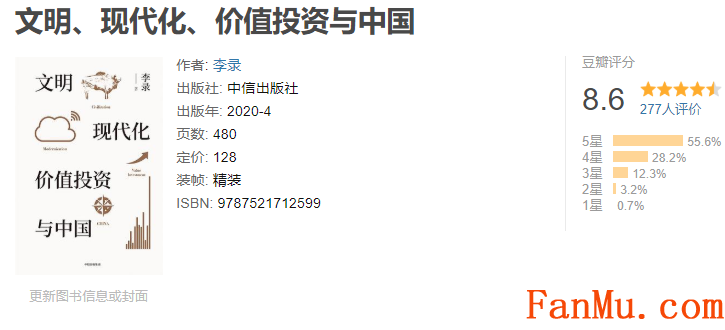
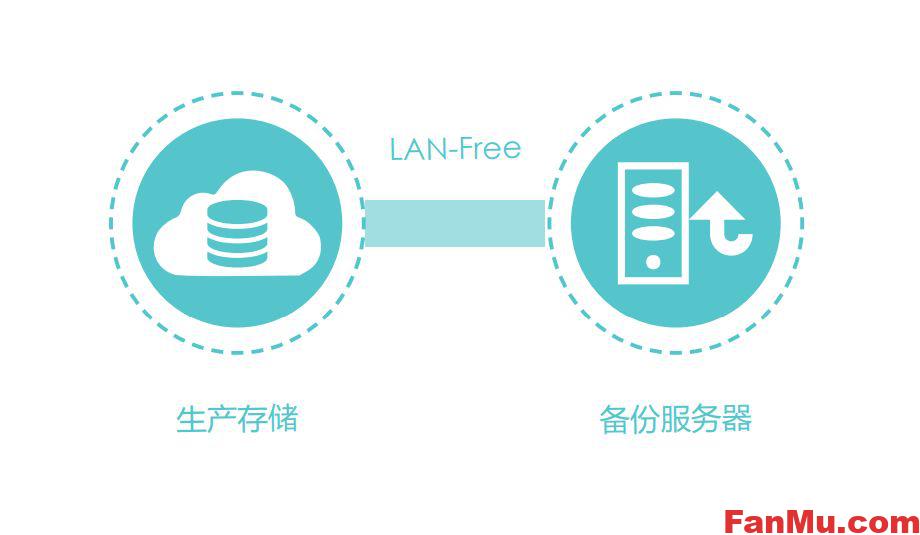
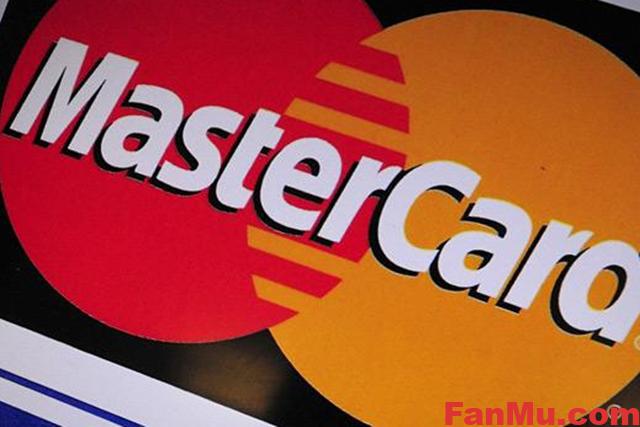
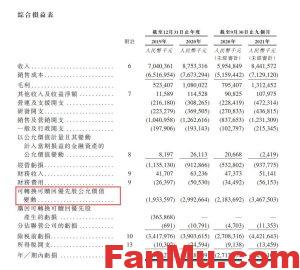
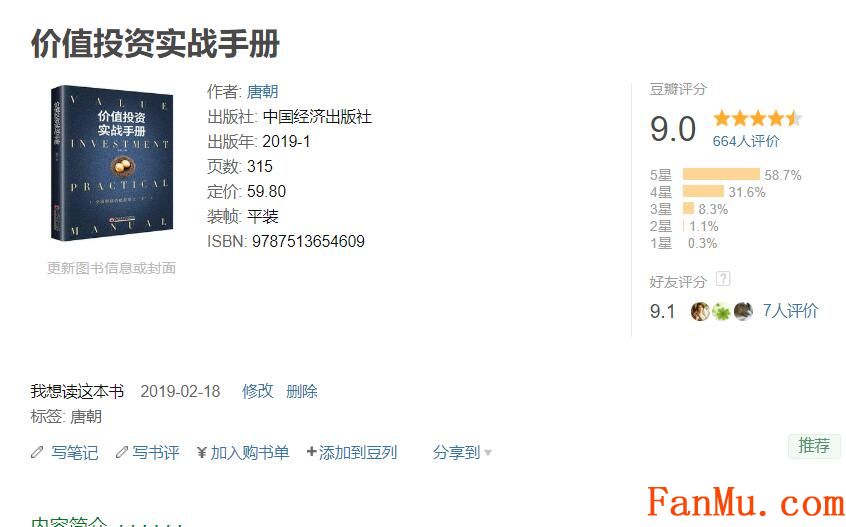
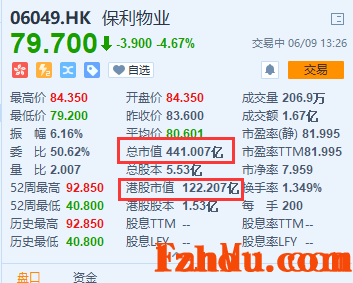
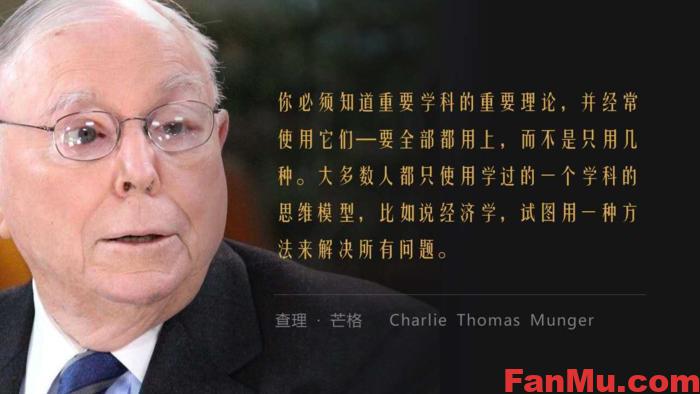

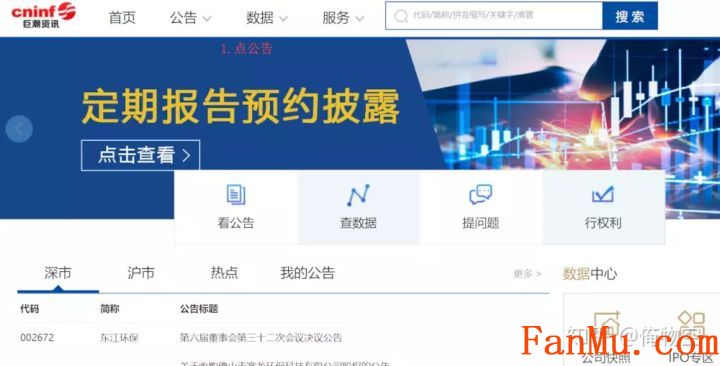

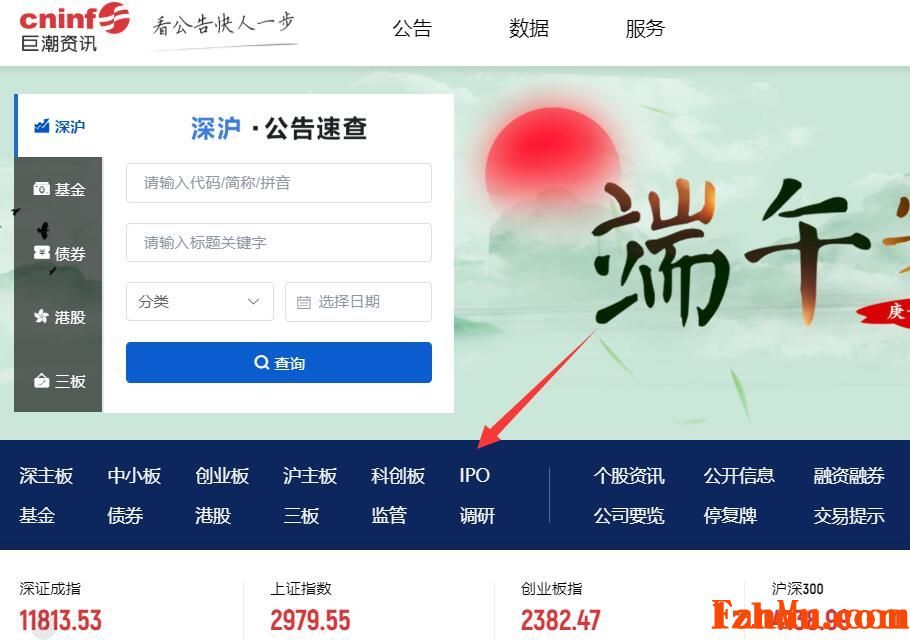

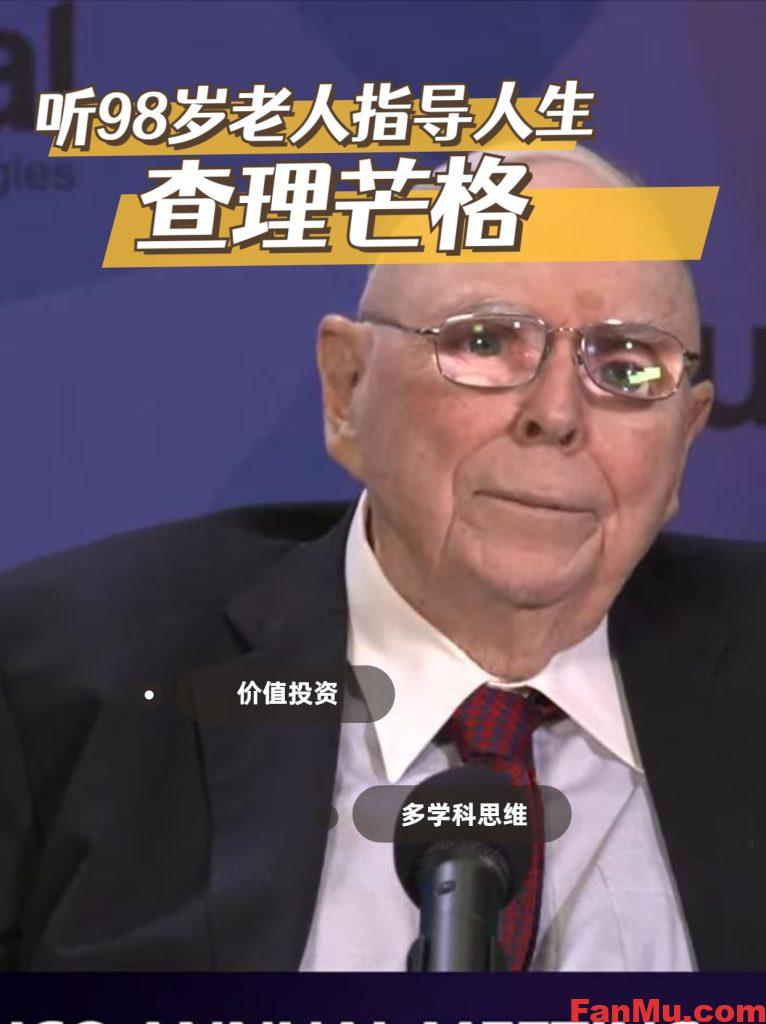
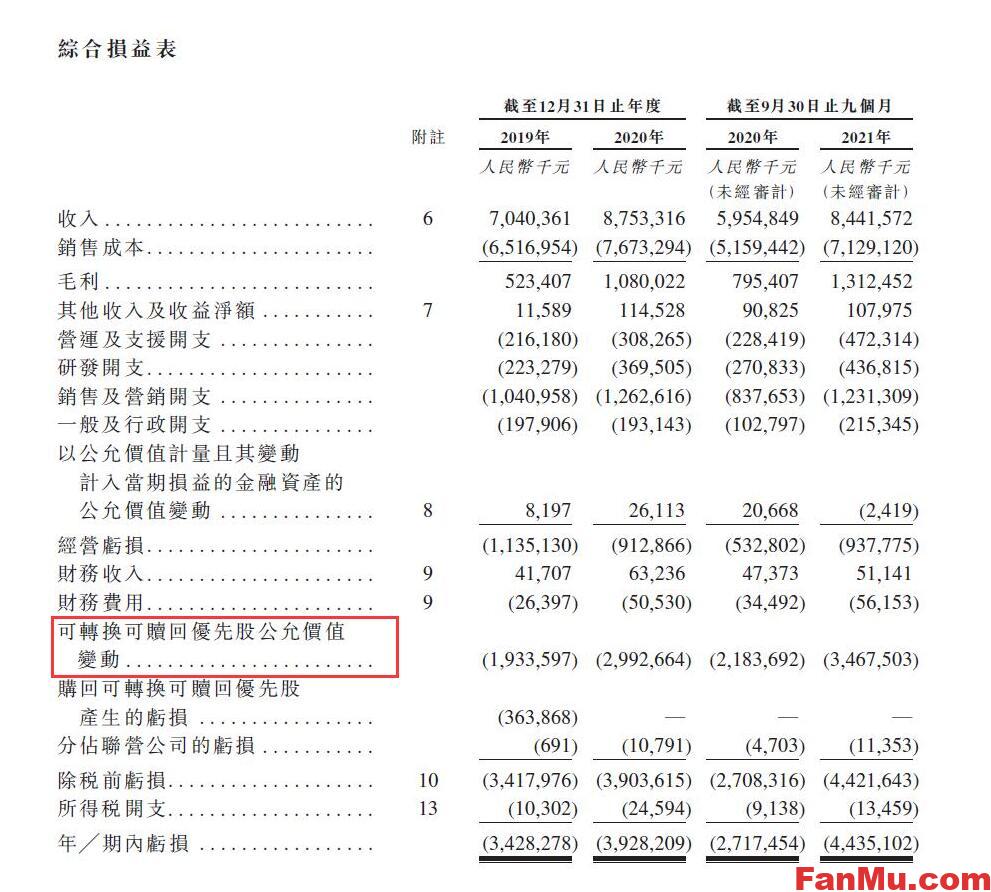


暂无评论内容